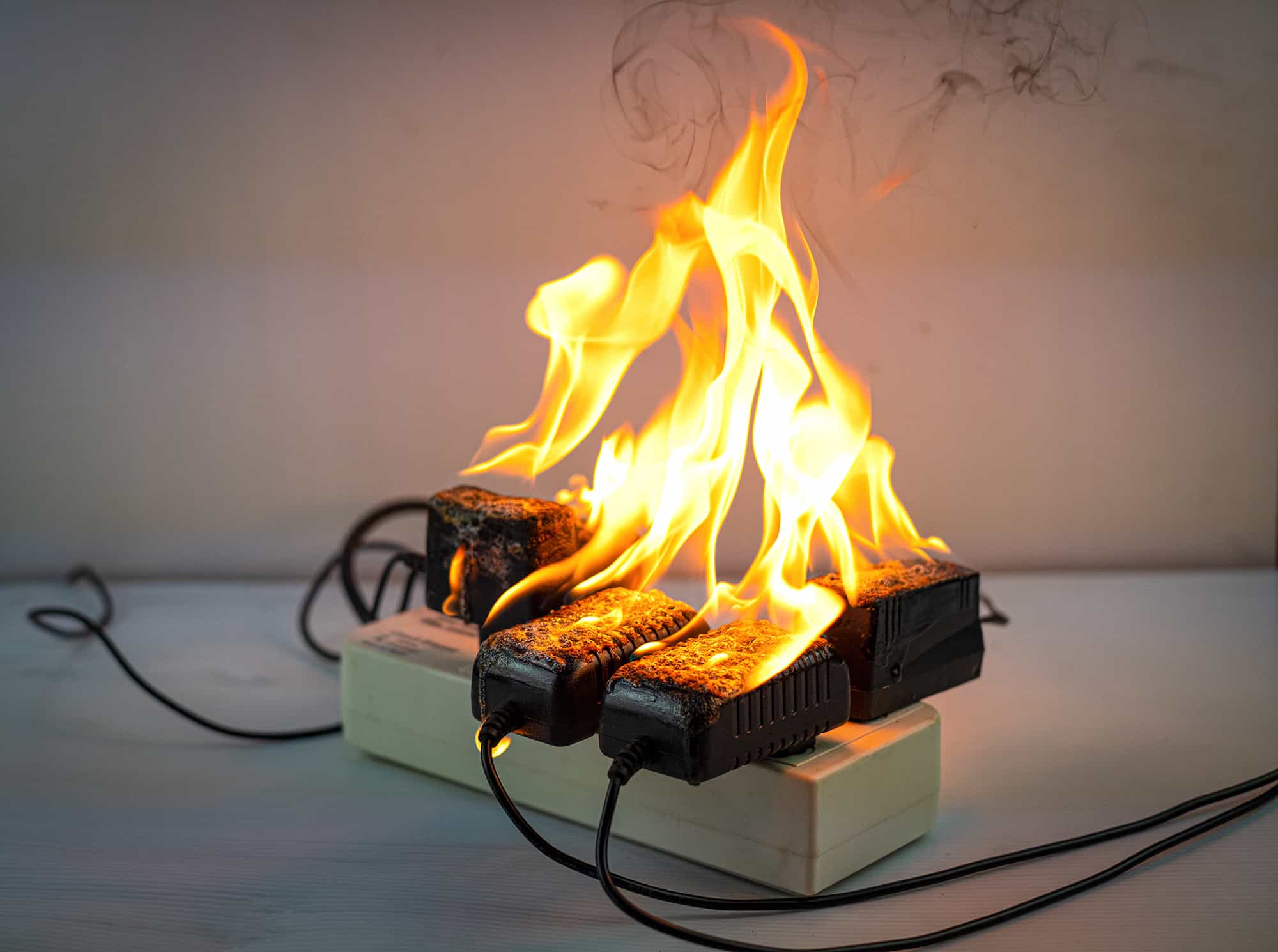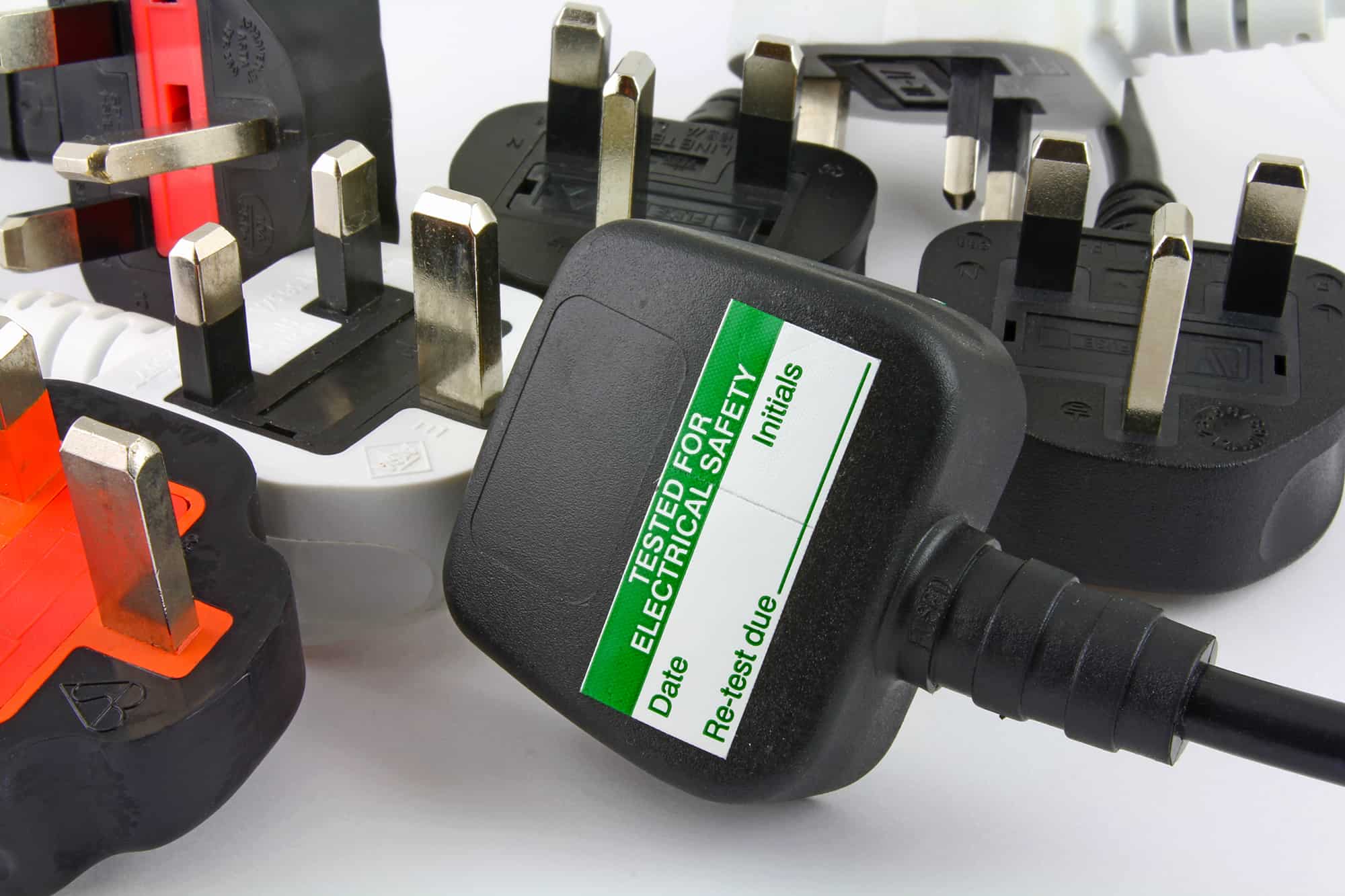What is the main cause of electrical fires in retail businesses?
Fires can cause serious damage to property, as well as injuries to people. In some circumstances the impact can be even more severe. Many fires are preventable with the majority caused by a lack of care and attention. Electrical equipment is a source of ignition and according to The Retail Mutual’s latest review on electrical fire claims, there has been increase in terms of volume and related costs. 51% of electrical fires are caused by faulty appliances such as fans, tumble dryers, fridge/freezers, washing machines, light fittings and fryer thermostats. Faulty wiring and fuse box issues make up a further 40%. With claims for fire damage and resulting injuries rising, here is a guide to help you avoid electrical fires starting on your business premises.
Tips to Avoid Electrical Fires
- Check for British and European safety marks
- Use the correct fuses and don’t overload sockets
- Check for worn and frayed wires and have items PAT tested by an expert regularly
- Never cut sealed plugs off to reuse them
- Where possible, unplug electrical items when not in use
- Use the correct chargers and unplug when charging has finished
- Keep electrical items clean and away from water and other liquids
- Don’t store boxes of stock near electrical equipment
- Never use a water-based fire extinguisher on electrical devices or equipment in the event of a fire
Sockets and Adaptors
There is a limit to the number of amps that one socket can take and so it’s important not to overload them with adaptors. A good rule of thumb is the 13amp rule, whereby this is the maximum load for any one socket. Plugging too many appliances into one socket can cause overheating. A multi-board bar-style adaptor is better than a block adaptor, as some of the latter do not have a fuse, which increases the risk of overloading or fire. Highly powered appliances such as washing machines and cookers should always have their own socket.
 Fuses and Wiring
Fuses and Wiring
Before you plug an appliance in, check the plug and ensure that the cable is secure and that there are no wires that are sticking out or exposed. Also, check for scorch marks and the smell of burning plastic. Be aware of fuses that blow and circuit breakers that may trip, as well as flickering lights. If any of these scenarios occur, call out a qualified electrician to investigate thoroughly. The appliance manual or the sticker on the equipment will indicate the correct fuse to use.
 Lighting and Lamps
Lighting and Lamps
- Have the correct bulb for all lighting fittings and fixtures
- Don’t put lamps or lights near to soft furnishings
- Use a qualified electrician to install lights in the ceiling or walls
- Install LED light bulbs where possible
- Read and follow light bulb manufacturer’s instructions
- Screw in bulbs securely
Ensure that the correct wattage bulb is used in a light fitting. If you were to use a bulb with a higher wattage than the light fixture or fitting recommends it can cause overheating and could lead to a fire. Most light fittings have a sticker specifying the acceptable light bulb wattage, although you can choose to use a bulb with a lower wattage.
Phones, Tablets and Laptops
Devices such as phones, tablets and laptops are very much part of today’s way of life for many people and it is important to use the right charger and not to use counterfeit chargers. Don’t leave devices charging on soft furnishings such as sofas as they could overheat, and once the device is charged ensure you unplug it.
General Fire Safety Tips
- Test fire alarms regularly and have a maintenance schedule
- Install smoke detectors and check regularly
- Train staff in fire safety and keep records of who has been trained, when, and when they are due for a refresher session
- Introduce regular fire drills
- Don’t block a fire escape route or prop open a fire door
- Put fire-fighting equipment in place including blankets and extinguishers and provide relevant training for staff
Complete a fire risk assessment
There are no specific time periods in law for how often fire risk assessments must be carried out or reviewed. The Regulatory Reform (Fire Safety) Order 2005 and published guidance from the Government states that a ‘responsible person’ must review the fire risk assessment regularly. The fire risk assessment must be reviewed if:
- there is a reason why the previous assessment is no longer valid (for example, if there has been a fire in the building)
- there have been significant changes since the assessment was done (for example, major building works)
Conclusion
By adhering to good practice in regard to electrical equipment, the risk of electrical fires can be minimised. It certainly makes good business sense to avoid electrical fires as The Association of British Insurers has reported that 60% of private businesses never recover from a fire. However, if a fire is detected, call 999 and get out of the building as quickly as possible. It’s imperative not to take any risks with your safety or that of family, colleagues and employees. Only switch the power off if it is safe to do so.
What insurance should I consider for my business premises for fire protection?
There isn’t a specific product on its own for electrical fire damage or fire damage insurance but there are several types of insurance to consider which could protect your business in the event of a fire.
- Stock and contents insurance
- Buildings insurance
- Business interruption insurance



